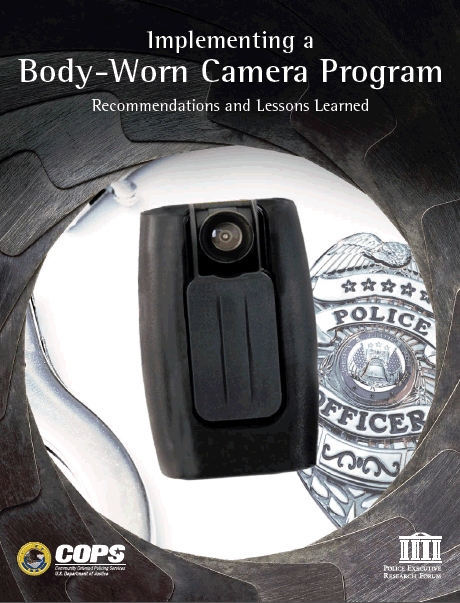
Minnesota’s complex debate about police body-cameras takes a new turn in St. Paul Wednesday. The City Council will hold a public hearing at 5:30 p.m. to consider the draft policy released last week by the St. Paul Police Department governing use of the cameras that are typically clipped to an officer’s uniform. In a discussion that involves competing interests and tradeoffs, there’s lots to digest as the department prepares, beginning next week, to test two camera systems over 60 days in its Western District.
From the department’s perspective, “It’s about accountability and transparency,” St. Paul police spokesman Steve Linders told us. “We want our officers to be safe. We want the community to be safe. We feel like this will be a powerful tool to help us accomplish that.”
Work on the policy, involving research, public meetings, and analysis of survey results, has been under way for about 18 months. Linders emphasizes that the department “partnered with the community” in the effort and will continue to do so “to refine it and make sure it works for everyone.”
He told us there isn’t a firm date for implementation of body cams department-wide and that the policy — posted online with information about continuing opportunities to provide feedback here — “could change based on what we learn in the pilot program.”
From the perspective of data-practices watchdogs, we’ve heard concern both about the policy’s timetable and content. They raise some issues St. Paul should consider as it proceeds.
Given what he views as the tight time frame from the draft’s release to the hearing and then the pilot program, “the public is not able to have due diligence,” Rich Neumeister, a St. Paul resident and fixture at the state Capitol on data-practices issues, told us.
“There’s not a lot of time,” Neumeister said, and it’s important that local policymakers “be able to hear what some of the issues are.”
It’s been his experience that once policy is set, it usually “doesn’t change that much,” Neumeister said. He considers it “law enforcement-sided” because the department is “treating the body cam as an investigative or evidence tool or surveillance tool.”
A report by the Pioneer Press’ Mara Gottfried notes that St. Paul’s policy includes a controversial aspect of the body-cam debate: Officers would be allowed to watch the video of an incident before writing a report.
New state law allows departments to decide whether such a “prior review” provision will be part of their policy.
“This is about documenting facts, finding the truth and making decisions based on reality,” police spokesman Linders told us. “Body cams are a powerful tool in that regard.”
Gottfried wrote that the approach aligns with current policy that lets officers watch squad-car video after an incident and before they write a report.
Like Neumeister, the Minnesota Coalition on Government Information, an open-government advocate, is concerned about use of body cams in the frequent non-emergency calls that bring officers to private homes.
In those situations — welfare checks, for example — it’s MNCOGI’s position that citizens should have control over whether cameras are turned on, board member Matt Ehling told us in an email.
The policy’s section on areas where recording is prohibited specifies “any location where a reasonable expectation of privacy exits,” including a bathroom or locker room, “unless responding to or encountering resistance or aggression” or necessary for investigation.
Ehling writes that MNCOGI wants the department to confirm that it “intends for this prohibition to apply to recording during consensual encounters in private residences.” If not, “we would like to see the language changed.”
The policy further notes that under state law, officers are not required to notify citizens when recording. It adds that — if asked — and “if reasonable and consistent with the officer’s safe and efficient performance of duties,” the officer should confirm whether the incident is being recorded.
The policy is not subject to council approval, but members should use their influence to assess the competing interests and help assure that residents and officers are ready for an important technology transition in St. Paul.
Source: twincities.com
